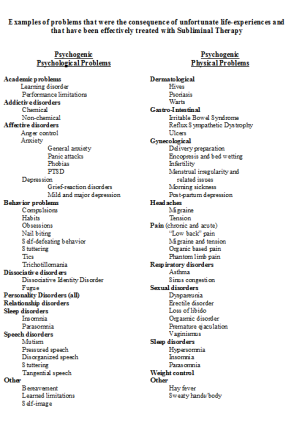 This article proposes that morning sickness is the consequence of subconscious rejection of awareness of pregnancy. It is a subconscious attempt by the mind to eliminate that subconsciously undesired reality.
This article proposes that morning sickness is the consequence of subconscious rejection of awareness of pregnancy. It is a subconscious attempt by the mind to eliminate that subconsciously undesired reality.
The nausea and vomiting of morning sickness can be prompted by the person’s mind; it is not necessarily caused physically. The smooth muscles of the GI tract, i.e., the muscles that mediate the vomiting, are not self-controlled; they are controlled at a subconscious level of the mind, at a highly sophisticated level of intelligence.
If we ingest a poison, our minds detect it and a reaction to eliminate it is instigated – all without conscious involvement. We are consciously aware of the reaction produced (the vomiting), but we do not consciously make it happen. In the same way, if we are the presence of another person who is vomiting, especially if we are able to smell the affluent, we experience the same urge to vacate, to eliminate the cause of the distress, by vomiting. We usually think of vomiting as a physical reaction that does not involve thinking in any way, but it does; the thinking takes place subconsciously. The following story demonstrates the exceeding power of the mind to directly affect physical processes.
In 1950, Stewart Wolfe, M.D, then a leading authority in the field of pharmacology, conducted research on the effect of mental influence on the person’s physical reaction to three medications. His published paper on the results, Effects of Suggestion and Conditioning on the Action of Chemical Agents in Human Subjects: The Pharmacology of Placebos, became a classic reference that impressively demonstrates the power of the mind to control the body’s reaction to medication.
One of the medications he studied was Ipecac. Ipecac is the medication used in emergency rooms to induce vomiting (for example, to expel ingested poison). When Ipecac is taken, the reaction of vomiting is immediate and it is intense; virtually nothing is left behind. Yet, Dr. Wolfe was able to use Ipecac as a soothing agent by offering suggestions for the soothing effect at the time he gave the medication to the subjects of the study!
When a woman first learns that she is pregnant, many thoughts must occur. Hopefully, most thoughts will be of joy and positive expectation, yet some are likely to be about other things that might happen, a physical defect, fear of pain during delivery, fear of morning sickness, of financial burdens or many other possible, unfortunate things. There may then be subconscious reaction to such regrettable yet unavoidable thoughts, a reaction to eliminate the cause of the distress, by vomiting.
During the course of almost 40 years of using and developing Subliminal Therapy, Dr. Yager has successfully treated morning sickness in many cases. In each case the process involved identifying the subconscious cause of the nausea and resolving that influence.











Recent Comments